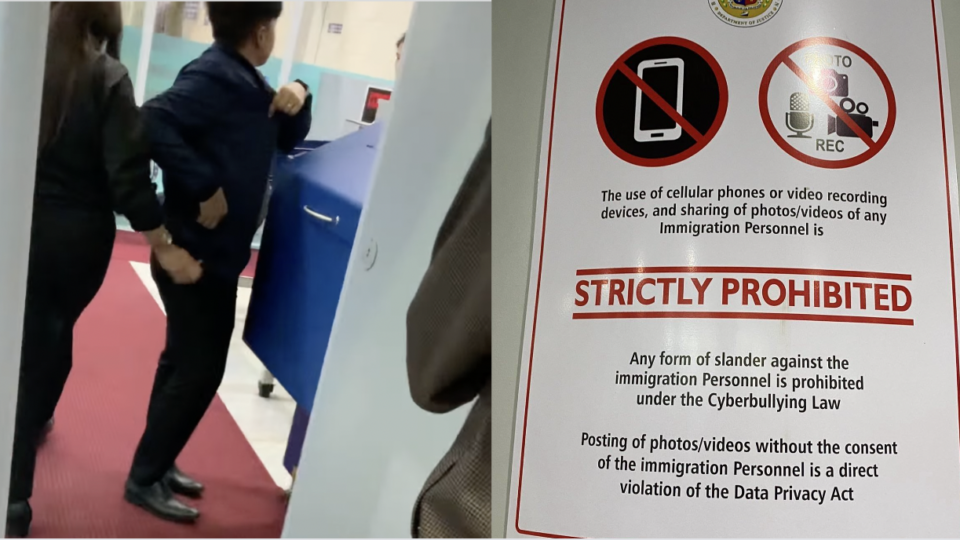After videos of airport officers allegedly stealing from a Thai tourist departing the country went viral on social media, the Bureau of Immigration went ahead and did what they clearly thought was the most logical course of action: ban photo and video recording on cameras and mobile devices.
ICYMI, a Thai tourist posted videos taken by his companion showing Office for Transportation Security (OTS) officers stuffing their pockets at a security checkpoint. When they were confronted by the victim, the officers returned the tourist’s money and pleaded to delete the videos.
The incident led to the identified officers getting sacked and the addition of new CCTV cameras at the Ninoy Aquino International Airport.
While the OTS is not under the Bureau of Immigration, the incident likely led the immigration agency to take preemptive steps to avoid similar situations.
A Facebook group called the Philippine Defense Forces Forum posted a photo of the new warning online.
“The use of cellular phones or video recording devices, and sharing of photos/videos of any Immigration Personnel is strictly prohibited,” the sign read.
It also warned that “any form of slander against the Immigration Personnel is prohibited under the Cyberbullying Law” and “posting of photos/videos without the consent of the immigration personnel is a direct violation of the Data Privacy Act.”
This raised eyebrows among netizens.
“Wrong reaction to a legitimate issue,” one wrote.
“This situation is unacceptable! It’s absurd that a provision would be created to safeguard corrupt and deceitful immigration officers. Rather, we should recognize and praise those who report such misconduct, as it can assist us in purging the agency of these unscrupulous individuals,” another wrote.
Meanwhile, one cited human rights lawyer Chel Diokno’s legal advice, who said that posting videos of public officials performing public duties is not covered under the Data Privacy Act.
“They’re government officials (supposedly) doing government work. This is unbelievable, they don’t even know the law they’re trying to brandish,” another said.



